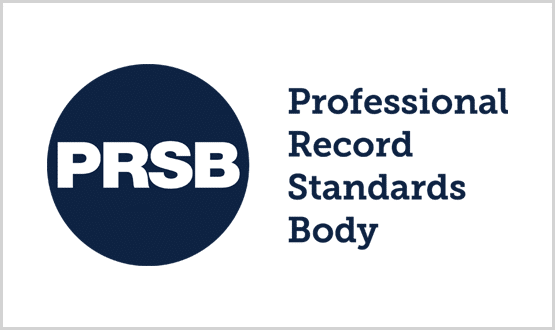On the buses
- 12 August 2014

The Oxfordshire Care Summary is an unusual information sharing initiative because it was created by a hospital IT team and is hosted in an acute environment.
Similar initiatives in other parts of the country have been created by shared IT services with a focus on primary care, because their aim has been to share GP information with other parts of the system, or to create entirely new records to work across health and social care.
The OCS, by contrast, is hosted on Oxford University Hospitals’ ‘case notes’, a clinical intranet that GPs have been able to use for 20 years to access pathology results and some other data.
It gives users access to a familiar suite of information – demographics, allergies, medications – and some less familiar ones – encounters, results and care plans. But it does this by going out and “looking” for the requested information on other systems; returning it in a “read only” form.
Case notes itself gives access to hospital and clinical encounter data and some documents, while community data is available via the ‘Oxford Health Information Cube’ and GP data is pulled together by Healthcare Gateway’s Medical Interoperability Gateway.
Expanding access
As of June 2014, there were 210 active users in four organisations, who had accessed information for 1,944 patients. But the project team has much bigger plans than that.
Although it initially thought that the OCS would benefit out of hours clinicians – and the first users were hospital pharmacists – it now thinks that the real benefits will come from improved care planning and patient access to their own records, via a planned portal.
“Two years ago, this was the vision we had in mind: the ability for patients at certain stages – especially end of life – to have a really joined up system,” says GP Andy Chivers.
“Part of this is giving people information so they don’t have to admit to hospital. We can get a lot of base-line data and make it available, especially for something like COPD [chronic obstructive pulmonary disease]. Then you can use that to see what is normal for that patient, which is an incredibly powerful tool.”
The OCS went live with 20 pharmacists from Oxford University Hospitals NHS Trust in March 2014. The team used guidelines drawn up by the national NHS Summary Care Record, which say shared records should only be made available once they have been created for 60% of the population.
Otherwise, there is a danger that health workers will go looking for records – and give up when they don’t regularly find them. Staff working in A&E and out-of-hours services were the next to get access, and they will be followed by those working in diabetes, renal and COPD services.
The pharmacists, in particular, have become enthusiastic users of the service. The team is now looking to create a specific view for them, and to create further specific views for the diabetic service and end of life care.
It is also hoping to have a patient portal in place by September that will include an audit trail of who has accessed information. For the patient portal project, it received £500,000 from the ‘Safer Hospitals, Safer Wards: Technology Fund’.
Further plans include access to social care information and enabling social care workers to access the OCS.
“The OCS will enable the transformation of many of the things that we do,” says Maggie Lay, the transformation lead for the project. “But if we had waited for everything to be perfect, we would never have launched it. We had to do it the pragmatic way.”
Built on a safety case
The team behind the OCS – which is now part of NHS Oxford Clinical Commissioning Group – has also come up with some unique solutions to the widespread problem of opposition to information sharing, and concerns about information governance and patient consent.
For a start, it conducted a clinical safety review of the proposals, which is at least unusual. “I think we are one of the few who did a clinical safety review, properly and to standards,” says Lay, a former nurse. “We have a Rottweiler of a GP who is very hot on clinical safety.”
It also put in place a ground breaking model for information sharing across the region, based on Caldicott guidelines, and including commitments from all those involved to process information lawfully.
Dr Chivers says: “The exciting thing for me is that GPs have been able to understand that information is a responsibility as well as a benefit; it’s a two-way street. GPs consent to receiving information and they have a responsibility for how they manage it.”
The creation of this over-arching model has been possible because the area has a well developed structure for leadership in health informatics.
The OCS project board sits under the Oxfordshire local informatics steering group, which is made up of informatics leads from acute trusts, the CCG, and the commissioning support unit, as well as Caldicott guardians and, more recently, representatives of Oxford County Council.
Wrestling with consent
Finally, the team has spent many, many hours on the thorny issue of consent. “The consent model has been extraordinarily difficult to do, because it needs to be informed, implied consent to share,” says Dr Chivers, who chairs the project board.
The team used the patient information programme for the SCR to tell people about the OCS, held town hall meetings, and put out advertisements on radio and the sides of buses.
Even so, a minority of GPs are holding out. “It took a long time to convince the majority of GPs to share their data,” Dr Chivers says. “It took one year to get to 85%, and the remaining 15% are still actively saying ‘no’ or ‘it’s just a bit too scary’.”
The team is starting to take a “more strident” approach to hold-outs, because hospital clinicians are now begging for 100% coverage of the OCS. It is planning to get clinicians to write to GPs when their patients are referred to them and they can’t access an OCS, to explain the impact this has on their ability to treat their patients.
The Local Medical Committee is also encouraging practices to see the OCS as part of good medical care. “We have a very good LMC with which we have always had a positive relationship,” says Dr Chivers. “It has been very important in smoothing the process.”
In all this, the spring row about the national care.data project to link Hospital Episode Statistics with other datasets and then make the information available to researchers and other organisations, has not helped.
In fact, Dr Chivers says it has been “a real problem” because staff do not always have the knowledge or time to explain the different projects and what they are used for. He is hoping that future care.data publicity will at least make this clear.
Care planning may be the benefit
Overall, Lay says the technical issues have not been the issues that have been hardest to solve. “Information governance and clinical governance are the key – and they will both take you longer than you think,” she says, when asked for tips for other areas inclined to move in the same direction.
“I think, speaking as a clinician, that you need to have clear in your mind what this is about and what it is for. So, if a patient said: ‘What are you sharing?’ you should be able to say: ‘We are sharing this data for this reason, and these are the other people involved’.”
She also argues from experience that starting with users in urgent care may not be the way to go; a point with which Dr Chivers agrees.
“We assumed it would be really useful in the emergency department and in out-of-hours,” he says. “But really the real added value is in shared care, because it is so powerful for better co-ordination.”
The team behind the Oxfordshire Care Summary has released a video about the project, which is on You Tube.
John Wilderspin, the managing director of Central Southern Commissioning Support Unit, which supports the Oxfordshire Care Summary, will be speaking at the Information for Commissioning stream of EHI Live 2014.
This year’s show takes place at the NEC in Birmingham from 4-5 November, and registration is open now. Visit the EHI Live 2014 website for details.





